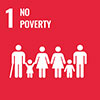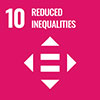From GDP to well-being assessment: new perspectives in measuring economic progress
This article critically examines the adequacy of the gross domestic product (GDP) as the sole indicator of economic and social well-being, proposing the need to integrate more holistic approaches in development assessment. It is argued that while GDP reflects the economic capacity of a nation, it fails to address fundamental aspects such as environmental impacts, human rights and cultural variables. The adoption of gross national happiness (GNH) by countries like Bhutan and Myanmar is mentioned as a pioneering approach that evaluates the quality of life from holistic and psychological perspectives, significantly distinguishing itself from the traditional GDP. Furthermore, the human development index (HDI) is discussed as a more inclusive indicator, encompassing dimensions such as life expectancy, education and income level, thereby providing a more comprehensive metric for human progress. This approach stands in contrast to the limitations of GDP by offering a more complete picture of human development. Consequently, the article advocates for a new economic paradigm that transcends the traditional focus on GDP and seeks a more thorough and sustainable understanding of human well-being, adapting to the challenges and opportunities of the 21st century.
SDG



 Marc Cortés Rufé
Marc Cortés RuféHe has a degree in Economics and Business Management. Master in Business Administration from IESE Business School and a doctoral student in the Business program at Universitat de Barcelona. Collaborating professor in the Economics and Business Studies of the UOC and professor in the Faculty of Economics and Business of the UB. He has worked in different international companies in the field of financial-economic consulting. He is currently the Manager of ESG-Sustainable Finance at Mazars.



